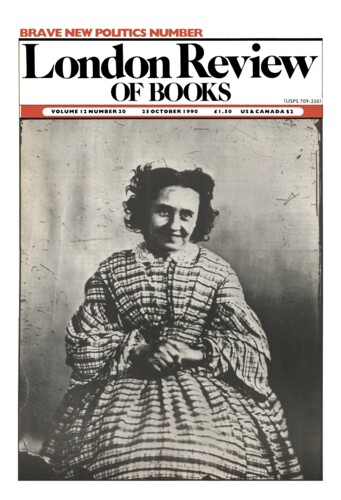The Open Society and its Friends
Christopher Huhne, 25 October 1990
It is barely more than a year since the Poles installed their first non-Communist government for forty years. The anniversary of the breaching of the Berlin Wall is still to pass. Yet it is already clear that 1989 was a turning-point in European history, worthy of comparison with 1789, 1830, 1848, 1870, 1917, 1945. A political order is marching off the stage just as the clerics, the Bourbon nobles, the Prussian Junkers and the Fascists once did. General Jaruzelski is a figurehead who is shortly to resign. Erich Honecker has retired in disgrace. Nicolae Ceausescu is dead. Only one of Eastern Europe’s Communist Parties – the Bulgarian – survived the test of free polls. Everywhere else, there are new forms of politics, not all of them pleasant, wrestling with the future. It is almost certain that the old Communists have been exorcised for good. As the Russian armies return home, there can be no re-establishment of the status quo ante.’

